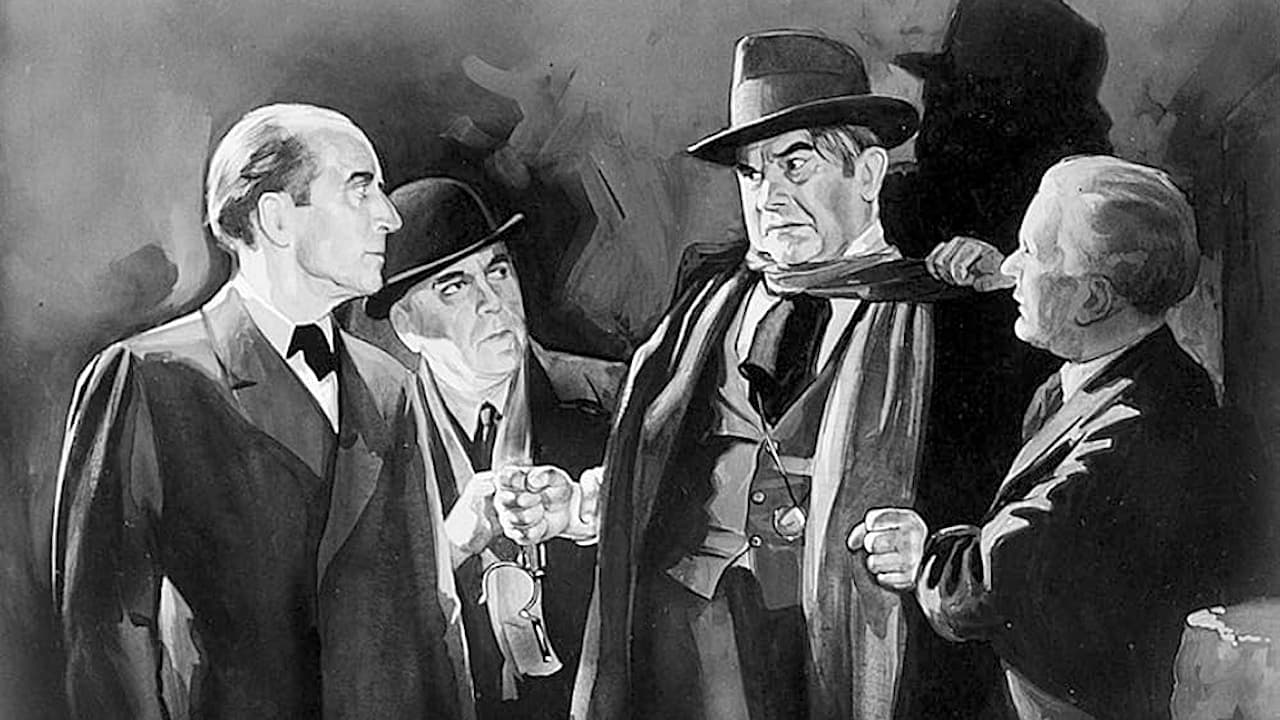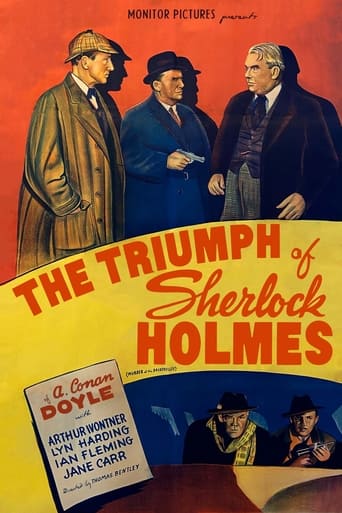


You won't be disappointed!
... View MoreVery Cool!!!
... View MorePeople are voting emotionally.
... View MoreAbsolutely amazing
... View MoreThis is the second of the early Holmes film experiments that I have seen. In The Sign of Four, they messed up the detective form by showing us the entire history before Holmes appears. Here, they do something similar. While Holmes interviews a woman about her recently dead husband, we have the major part of the film time occupied in a flashback illustrating her story. That story is a small film by itself. The outer story is a combat between Moriarty and a *retired* Holmes that ends with a chase up a medieval tower with what might have been exciting camera-work in its day. This story does respect Holmes as a detective, and the task he tackles is not something we already understand. I can see that as they made extra films, they tried different mixes of explicit storytelling and deduced and explained stories.
... View MoreWhile IMDb says that this was based on a Conan Doyle story, you'd have a hard time recognizing the original. That's because so many details were changed and the entire Moriarty plot line was ridiculous--having nothing to do with the original stories. For the Sherlock Holmes fans out there, Moriarty died at Whisteria Falls--and the whole angle about Holmes going into retirement is poppycock. What also is VERY problematic for me, and it's less because it violates the Holmes canon, is the way the story is told. About half the film is told in flashback!!! What a sloppy and boring way to tell a story! Overall, because of the many problems, this is among the worst of the Arthur Wontner films of Sherlock Holmes. There are some very, very good ones and some bad ones. This is a bad one--due less to the acting and more for the bizarre and convoluted storytelling.
... View MoreAn excellent Holmes story that benefits greatly by going directly to the source (mainly Arthur Conan Doyle's "The Valley Of Fear") and not only sticking pretty much to the original plot but also using a lot of the great dialog that Doyle wrote for Holmes. The problem with translating Sherlock Holmes to the screen (or writing new Holmes stories in full-length novel form) is that Doyle's original creation was such a brilliant detective he solved most mysteries almost instantly. Therefore, the short story was the best medium in which to present his adventures. If a story has to be stretched out to novel or feature film length, some other means had to be found to fill out the time and pages. Thus, beginning with Basil Rathbone (or maybe even earlier with William Gillette's original play), Sherlock Holmes became an action hero rather than a thinker. Arthur Wotner's Holmes and the script of "Triumph" retains the original essence of "the best and wisest man I have ever known" and shows us that he can delight and thrill us even more by seeing him as he was intended to be seen.
... View MoreThe movie opened in 1935 and appears to be set in the 1930s. The original Arthur Conan Doyle serial, from which the screenplay was written, was published in 1914-15, and was set in the 1880s.The movie's flashback to the U.S.A. introduces the Scowlers, a secret society of thugs. The fictional Scowlers appears to be based on the Molly Maguires, an actual secret society of immigrant Irish coal miners in eastern Pennsylvania, USA, in the 1860s and 1870s. They were set up as a secret network of local committees, and they did not brand their members, since they wished to remain anonymous.Conditions in the mines were abominable, as this was long before child labor laws, a minimum wage, suitable standards on working conditions, or any organized form of labor union. The Mollies fought back with threats, beatings, riots, and murder against abusive mine owners, supervisors, police, and anyone who spoke out against them.The powerful owner of many coal mines hired the Pinkerton Detective Agency to infiltrate the society, and one of their detectives managed to join the Mollies and stay under cover for nearly five years. When his investigation was finished, trials in were held, twenty convicted society members were hanged, and the Mollie Maguires were history.So the film's use of a local committee of thugs, and the triumph of the Pinkerton Detective Agency, are quite realistic, based on Pennsylvania history.
... View More